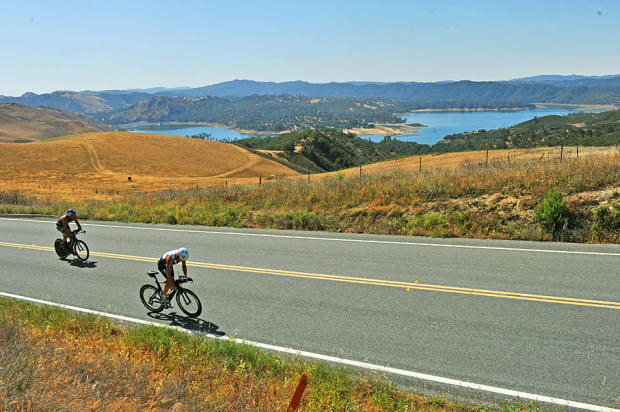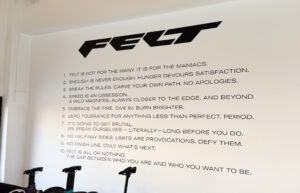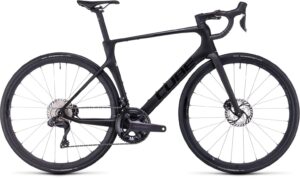Picking a Course
This is the fun part, scouting triathlon courses. There are worse ways to spend your idle hours than peering down upon a prospective venue with Google's all-seeing satellite images. Google “Earth” is better than “Maps” because you can fly around, like a helicopter, looking down at a 45° angle, seeing topographical changes. It’s the best! I find a course, find the prospective route, lay it out in MapMyRide, get the distance, save it, send it to my phone, send it around to those whose opinions I want.
The important thing is to pick a venue and a course that'll provide you a race that won't cost much to produce. That in turn will mean you can start small, and let your race have a chance to grow, and your abilities as an RD can grow with it.
I spent last weekend scouring Mexico for gravel bike triathlon courses. Mexico! My friend Jaime Cadaval is the great race production success in that country, and when I’m done I email him: Have you seen this lake! Look at this place!

Throughout California I see venues all around me in which there are no races. Has the accessibility of the venue been tested? When I hear that someone has "already checked out [this or that] body of water," and you can't put a triathlon on there, I rarely take that as a firm "no." I'd want to know to whom the presentation was made, and how strong was the sales job. Here’s a hint: The final reservoir before the water goes into the public supply is almost always off limits to human body contact; every reservoir upstream from that one is almost always available for swimming, regardless of what the water company that owns that water might tell you. I’ve won that battle numerous times.
Just because you can put a race on in a certain location does not, however, mean you should. I have two questions in my mind, beyond whether it’s fun and scenic, which are paramount: Will the course be safe? Will the race be cheap to produce? Usually, the two go hand-in-hand. "Safe" means very few intersections, extremely sparsely traveled roads or, failing that, roads with wide shoulders. You want bike courses which are easy to marshal, meaning that you'll need few marshals, and if they're straightforward intersections — especially rolling right hand turns — you may be able to get away with using quasi-official traffic controllers (instead of expensive, time-and-a-half sheriffs or highway patrolmen).
Here is a short checklist for choosing the right venue and the right course:
1. It goes without saying, the water needs to be clean and safe. It would be reassuring to know there's a vibrant inlet and outlet, and it's not out of line to ask the appropriate person charged with the water quality whether the water's safe for swimming, and what sort of testing might they do to know that. The source also must be reliable, that is, water needs to be there each year when you're contemplating having your race.
2. There has got to be a good spot for a transition area, and a way to easily get from the water to the transition. Most often it's the boat ramp, and there's usually a parking lot close to the ramp.
3. There have got to be good, easily-managed roads and intersections. Best is if there's a loop made out of right-hand turns (Wildflower's 56-mile bike course is a good example). Out-and-back courses are often problematic, because they require double the road width for bike travel. The alternative to this is an entire road closure, which might be workable if the road is rural; and if no one, or almost no one, lives on it; and if there is an alternate route that can be used as a detour.
4. If you've got all of that, you're usually able to figure out some place to run.
5. Are there places for people to stay? Motels? Camping spots? Is there electricity on-site? And running water? Is the water potable, and does it taste good? Otherwise, you've got to truck water in for aid stations.
6. Is this course going to cause a lot of displacement among the locals? Are you making a church inaccessible for parishioners on a Sunday morning? Are you closing off commercial concerns from being able to do business?
7. What time of year will you be holding your event? Is the weather conducive? Will it be Africa-hot? Or, if it looks like a great spot in August, and you want to have your race in May, are there seasonal road closures that will still be in effect? If the swim venue looks great in May and you want to have your race in September, will the water level still be high? Are there times of the year—usually during high runoff—when the water is less likely to be clean?
Be creative in your thinking. Don't necessarily assume that problems with the above checklist are deal breakers. I put on a race where I hemmed in the bait shop, making it impossible for it to do business on race day. To make matters worse, we were closing the boat ramp at 7AM. The bait shop owner complained to high heaven. A lot of RDs would've resorted to the power play, getting the city council to side with the us over the bait shop owner
Instead of that, I asked the bait shop owner how much bait he intended to sell that day. “I might sell $300!” You know what I did, right. Just the offer was enough. He refused the check, and the bait shop owner became a big ally of ours. He just wanted us to be sensitive to his concerns.
There are 3 things that are paramount to me: Is the course scenic and fun? Is it cheap to produce? Can I satisfy the locals? Those last two elements are critical to success, because, think about it. What are the most successful triathlons you know of? Ironman? Wildflower? What are the events you really like? Survival of Shawangunks? Savageman? American Triple T? Here’s my question: How many of them started out big? You know, with 2,000 people? Wildflower had 87 its first year. Ironman? 16. The best races, the longest lasting, the icons, were produced out of love. If what fuels you is love, not money, then you need a cheap course.
Realize what I didn’t list as paramount: Proximity to a major metro area. Look at the races above I listed. Which are within a 45-minute drive of most of their contestants? If you put on a great race, people will travel. It’ll take a couple of years, maybe more, so, make sure your race is cheap to produce! Folks will travel to get to a good race.
The Series:
• How to Be a Race Director
• Picking a Course
• Pacify the Locals
• Getting That Special Event Permit
• Assembling Your Race Committee
• Your Race Budget
• Traffic Plan
• Getting Volunteers
• Getting Sponsors
• Attracting Media
• Filling Your Race
• Aid Stations







Start the discussion at forum.slowtwitch.com